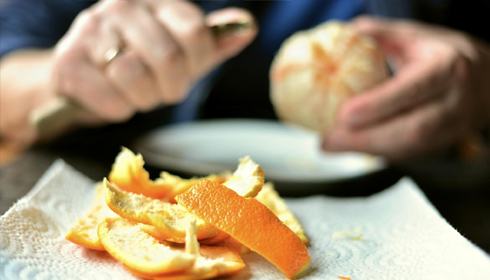
New Study Explores How Confined Spaces Alter Food Aroma Perception
A groundbreaking study by RMIT University has shed light on how confined and isolating environments influence the way humans perceive and emotionally respond to food aromas. Food Research International published the research, which has significant implications for improving diets in remote settings like space missions and nursing homes.
The study compared 44 participants' emotional and sensory responses to eight food aromas—vanilla, almond, lemon, lemon myrtle, eucalyptus, peppermint, vinegar, and lemongrass—in two settings: a microgravity posture simulated by reclined chairs and a confined environment recreated through virtual reality (VR) goggles that mimicked the International Space Station (ISS).
Dr. Julia Low, the co-lead researcher, wrote, "Pilot studies show that spending 10 minutes in VR can induce feelings of confinement, highlighting VR's effectiveness over other methods such as immersive screens." The VR simulation induced stronger sensations of most food scents than the microgravity stance, with the exception of lemongrass, which remained softer in intensity.
"Lemongrass has a more floral and earthy aroma, whereas the other aromas are pungent, spicy, or sweet," noted first author and PhD scholar Grace Loke, adding that the nature of the olfactory profile most likely led to this distinction.
The study found that emotions had a considerable influence on fragrance perception. Participants who experienced positive emotions reported increased sensitivity to fragrances such as almond and vinegar, but mild stress reduced their awareness of some scents. This emotional interaction may explain why astronauts gravitate toward things in space that they would not eat on Earth.
"This research opens possibilities for personalized meal plans for astronauts and individuals living alone on Earth, showcasing VR's potential to explore variations in eating when stressed," says Loke.
Dr. Lisa Newman, co-lead researcher, emphasised the findings' larger significance, pointing out that simulations could assist astronauts psychologically in adapting to eating in cramped places. "Our findings suggest a simulation using VR and the microgravity posture could aid in training astronauts and personalising meal experiences to support their wellbeing during long missions, including trips to Mars," she reported.
While previous research focused on how microgravity affects taste, this study emphasized the tremendous influence of confinement and isolation on fragrance perception. These findings also indicate that tailoring fragrances to individual emotional states may improve meal satisfaction in isolated populations, such as nursing home residents.
"This research collectively highlights the critical role of our environment on taste and smell," Low said, emphasising the necessity of knowing individual diversity and how it affects sensory experiences.
Future research will seek to merge VR and microgravity simulations for a more comprehensive understanding, perhaps revolutionizing how astronauts and solitary individuals approach food and nutrition.